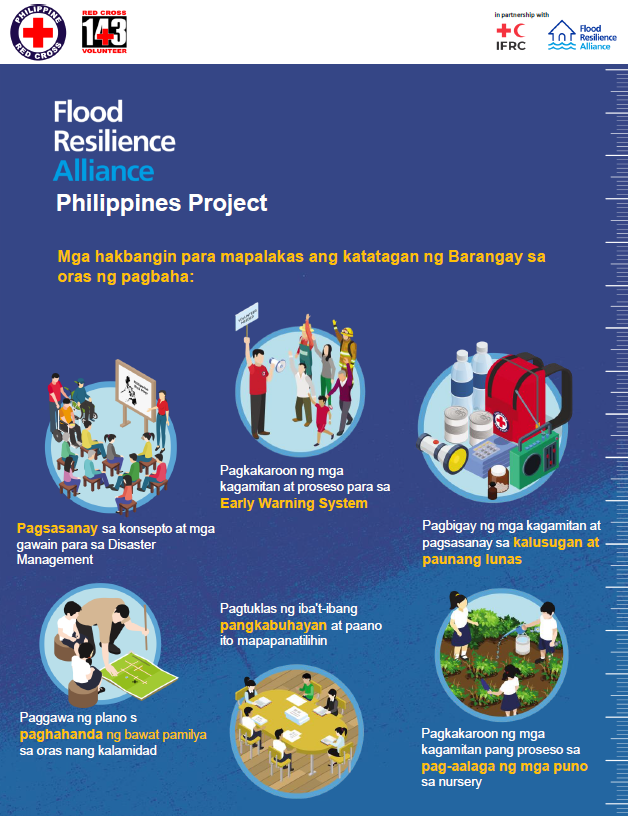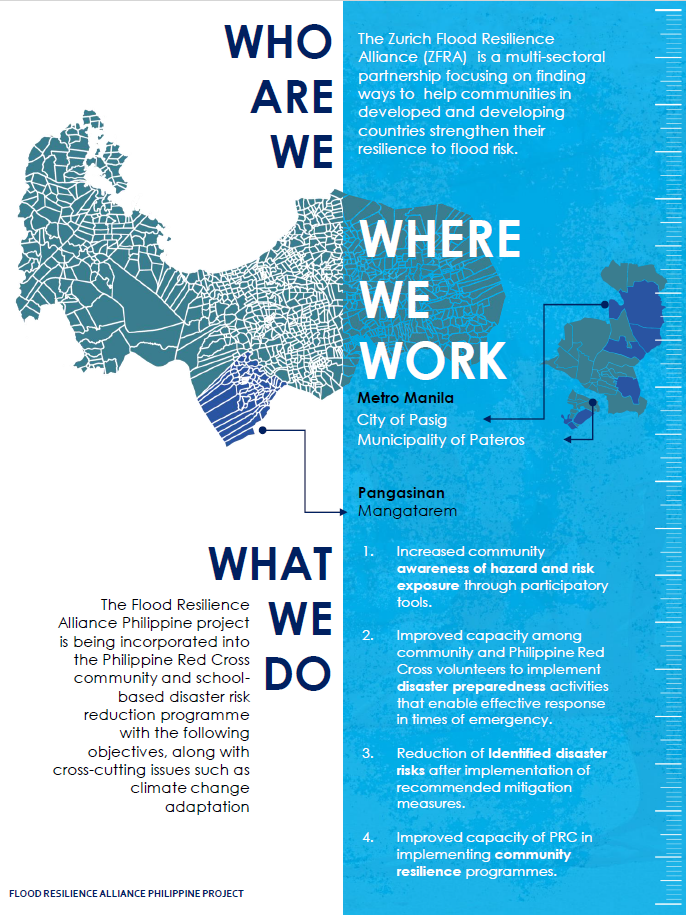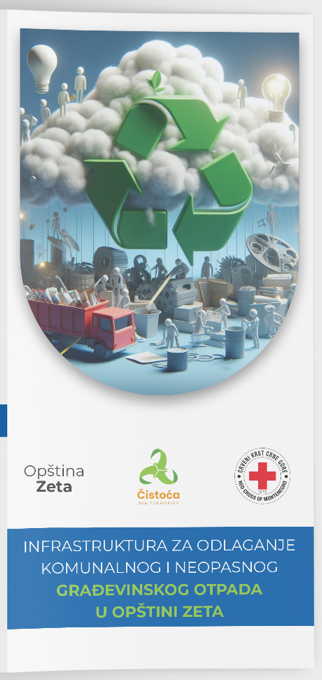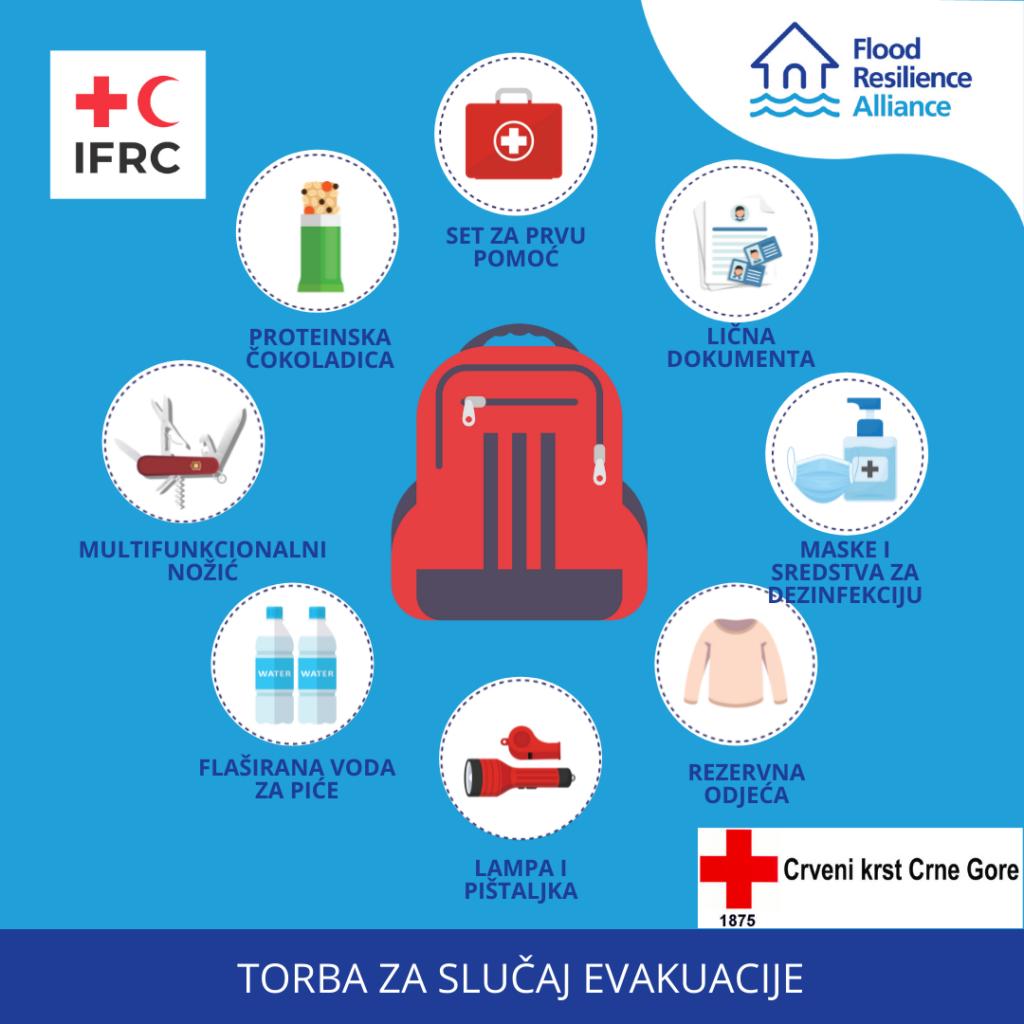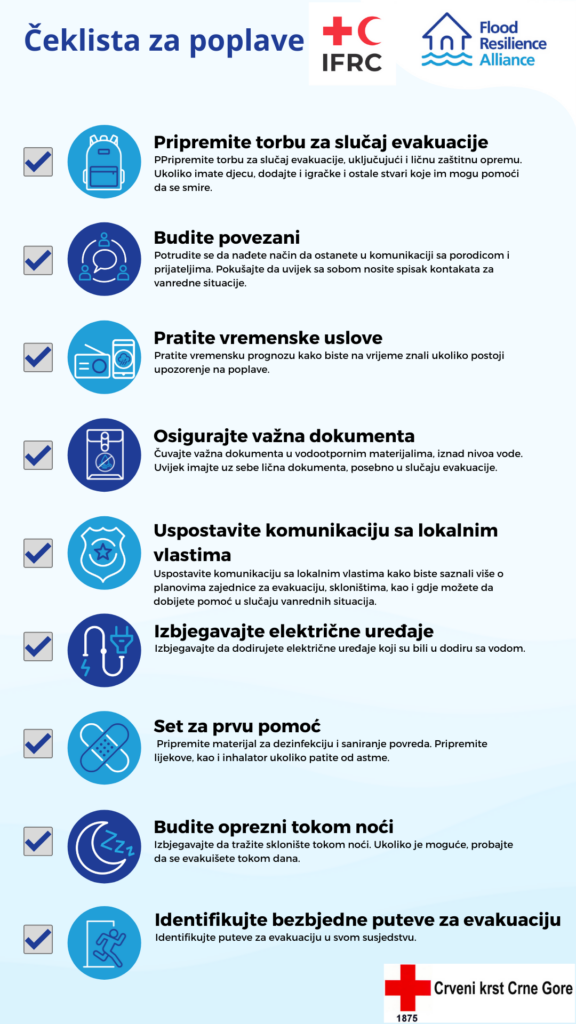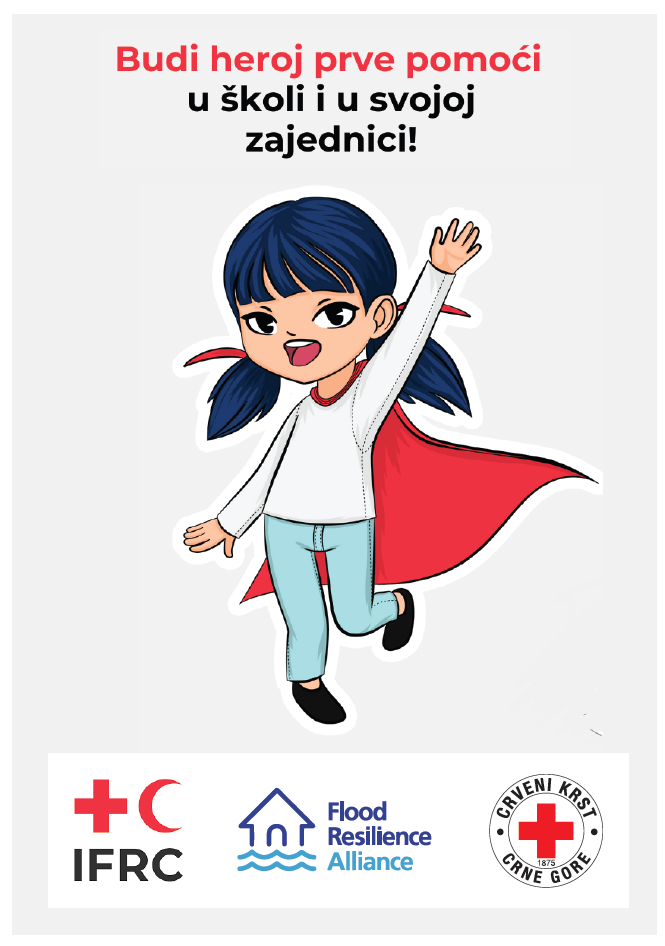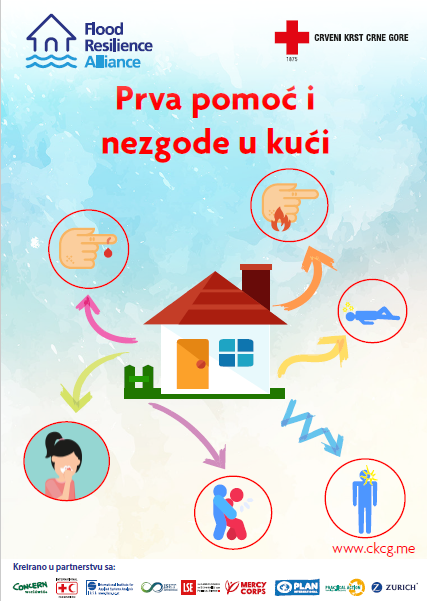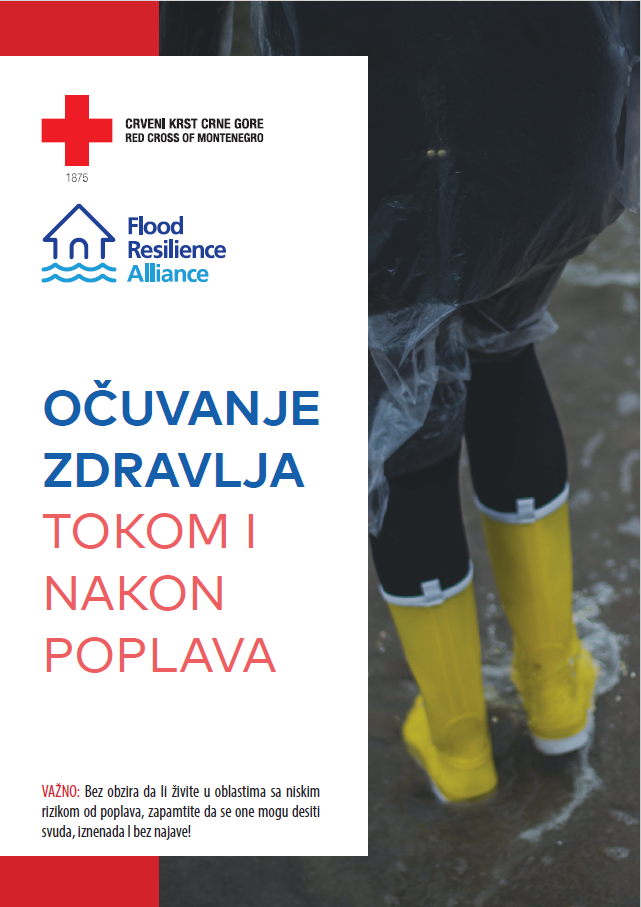Brochure on Flood Resilience Alliance activities in Pangasinan, Pasig & Pateros, Philippines
Since 2018, the Philippine Red Cross, as part of the Zurich Flood Resilience Alliance, has worked to increase flood resilience in vulnerable communities in rural and urban contexts of the Philippines. This brochure was used to raise awareness of the priority areas of work the project is targeting to increase community resilience, including trainings in […]

